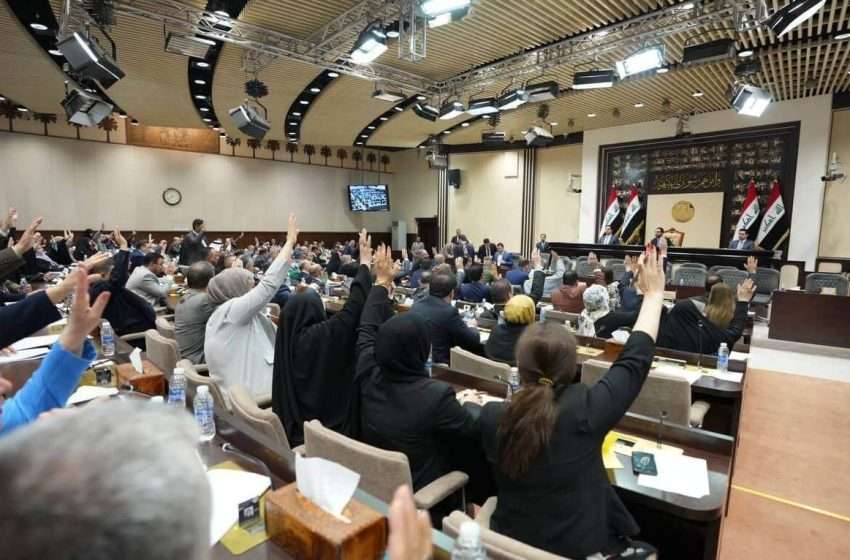On Monday, June 12, 2023, Iraq’s parliament belatedly approved a $152 billion budget for 2023.
The budget, which was approved six months into the fiscal year and after four chaotic late-night voting sessions, allocates 12.6% of the revenue to the Kurdish region and is seen as strengthening Baghdad’s hand on the oil revenues.
The approval comes after months of wrangling over the sharing of oil revenue between the central government in Baghdad and the semi-autonomous Iraqi Kurdish region in the north.
In the absence of a binding law detailing the sharing of funds from oil and gas exports, the Kurdish region has moved ahead with exports on its own, while Baghdad has maintained that all exports should be run through the state-owned oil marketing company, SOMO, with Irbil receiving a share of the profits.
The Kurdish area can market its own oil under the new budget, but it must deposit the proceeds in a bank account that is under the control of central government officials. The money will subsequently be subtracted from Baghdad’s monthly payment to the Kurdish regional administration, with any remaining funds being sent to Irbil.
The Kurdistan Democratic Party, the main Kurdish party, objected to the clauses regarding the revenue sharing procedure and a related dispute resolution structure, which contributed to the budget vote taking several days to pass.
With 220 seats, the Shiite majority coalition holds the most seats in the 329-seat Iraqi parliament. The Kurds, who are the second-largest ethnic group in Iraq, have about 60 seats. However, they are divided between two main parties; the KDP and the Patriotic Union of Kurdistan (PUK), which are often in disagreement.
The finalization of the budget on Monday was a victory for Prime Minister Mohammed Shia al-Sudani’s government, which was formed last year following a lengthy political vacuum in the wake of the 2021 elections.

The parliament did not pass a budget last year due to the political stalemate. With the approved budget, al-Sudani’s government hopes to combat poverty and bring much-needed economic stability.
A Cause For Concern
According to the budget, revenues in 2023 will be around $103.3 billion, based on an estimated price of $70 per barrel for oil exports, Iraq’s primary source of income and which are estimated to secure export 3.5 million barrels per day, including 400,000 thousand barrels from the Kurdish region. A deficit of nearly $48 billion is projected by the budget.
Mudhar Mohammed Salih, al-Sudani’s adviser for financial affairs, opined that, “The new budget is a cause for concern, as it relies heavily on oil revenue.”
“If oil prices drop, the deficit will increase, forcing the government to borrow money. This is a risky proposition, as it could lead to debt problems,” he added.

Last month, a report by the International Monetary Fund on Iraq’s finances warned that the “fiscal loosening” proposed in the budget plan could lead to inflation and exchange rate volatility in the short run, while in the medium term, oil price fluctuations could lead to “critical macroeconomic stability risks.”
“Barring a large increase in oil prices, the current fiscal stance could lead to mounting deficits and intensifying financing pressures in the coming years,” the report noted.
In an apparent effort to avoid haggling over the issue for the next two years, Monday’s vote also approved the same budgets of $152 billion for 2024 and 2025.




















